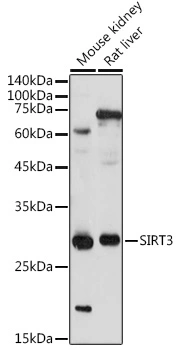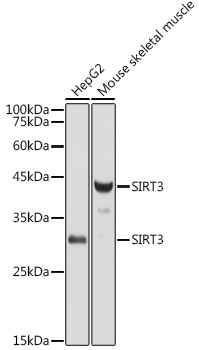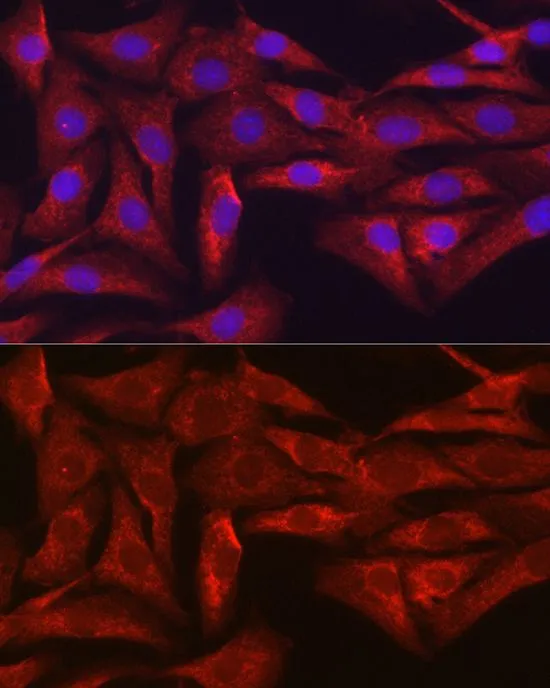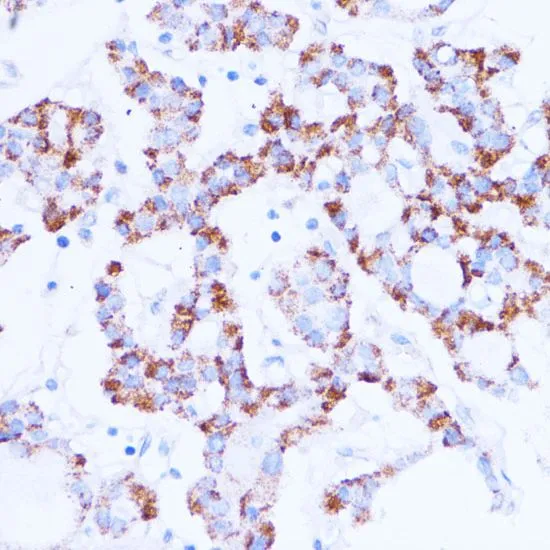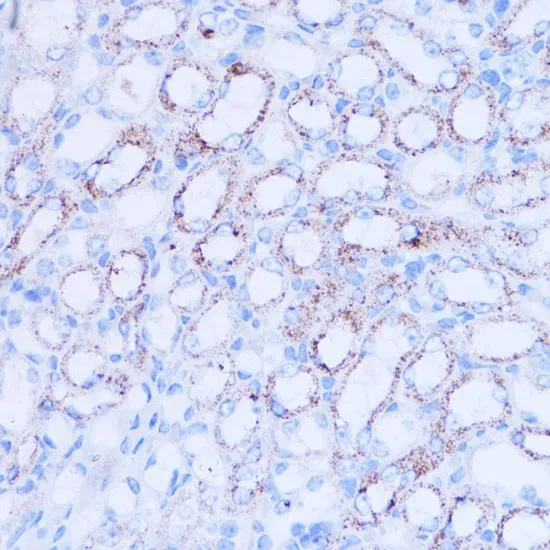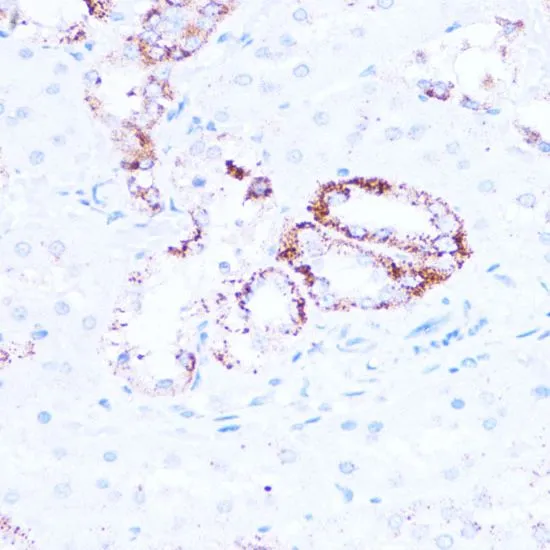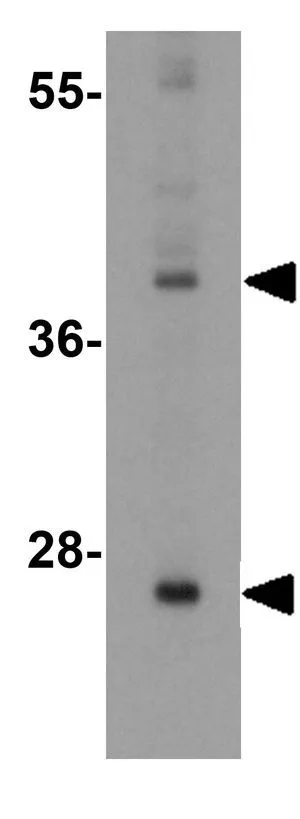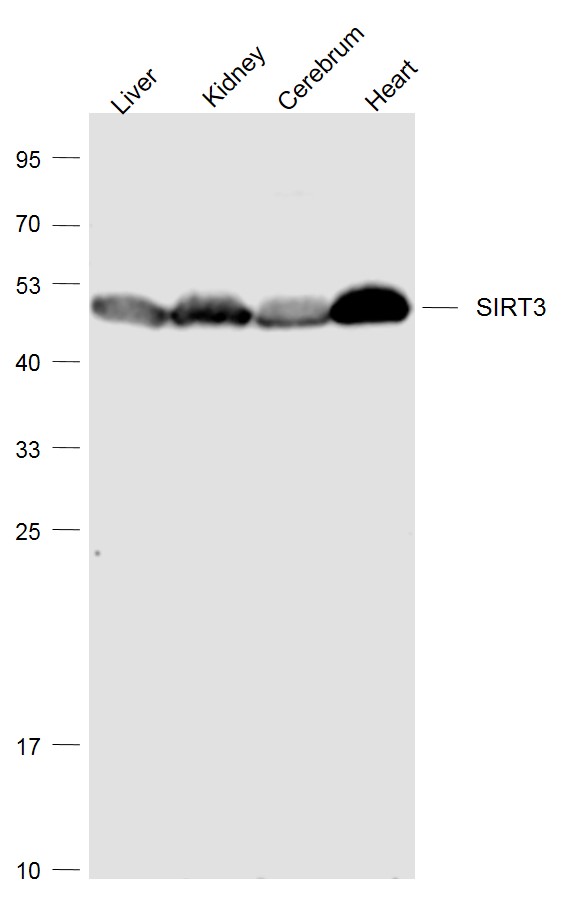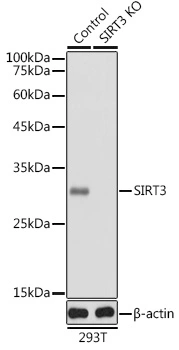
WB analysis of 293T cell lysate using GTX33499 SIRT3 antibody. Dilution : 1:1000 Loading : 25microg per lane
SIRT3 antibody
GTX33499
ApplicationsImmunoFluorescence, Western Blot, ImmunoCytoChemistry, ImmunoHistoChemistry, ImmunoHistoChemistry Paraffin
Product group Antibodies
TargetSIRT3
Overview
- SupplierGeneTex
- Product NameSIRT3 antibody
- Delivery Days Customer9
- Application Supplier NoteWB: 1:500 - 1:1000. ICC/IF: 1:50 - 1:100. IHC-P: 1:20 - 1:50. *Optimal dilutions/concentrations should be determined by the researcher.Not tested in other applications.
- ApplicationsImmunoFluorescence, Western Blot, ImmunoCytoChemistry, ImmunoHistoChemistry, ImmunoHistoChemistry Paraffin
- CertificationResearch Use Only
- ClonalityPolyclonal
- ConjugateUnconjugated
- Gene ID23410
- Target nameSIRT3
- Target descriptionsirtuin 3
- Target synonymsSIR2L3, NAD-dependent protein deacetylase sirtuin-3, mitochondrial, NAD-dependent deacetylase sirtuin-3, mitochondrial, NAD-dependent protein delactylase sirtuin-3, SIR2-like protein 3, mitochondrial nicotinamide adenine dinucleotide-dependent deacetylase, regulatory protein SIR2 homolog 3, silent mating type information regulation 2, S.cerevisiae, homolog 3, sir2-like 3, sirtuin type 3
- HostRabbit
- IsotypeIgG
- Protein IDQ9NTG7
- Protein NameNAD-dependent protein deacetylase sirtuin-3, mitochondrial
- Scientific DescriptionThis gene encodes a member of the sirtuin family of proteins, homologs to the yeast Sir2 protein. Members of the sirtuin family are characterized by a sirtuin core domain and grouped into four classes. The functions of human sirtuins have not yet been determined; however, yeast sirtuin proteins are known to regulate epigenetic gene silencing and suppress recombination of rDNA. Studies suggest that the human sirtuins may function as intracellular regulatory proteins with mono-ADP-ribosyltransferase activity. The protein encoded by this gene is included in class I of the sirtuin family. Two alternatively spliced transcript variants that encode different proteins have been described for this gene. [provided by RefSeq, Jul 2008]
- Storage Instruction-20°C or -80°C,2°C to 8°C
- UNSPSC12352203
References
- Ruiz-Ramírez A, Barrios-Maya M, Quezada-Pablo H, et al. Kidney dysfunction induced by a sucrose-rich diet in rat involves mitochondria ROS generation, cardiolipin changes, and the decline of autophagy protein markers. Am J Physiol Renal Physiol. 2020,318(1):F53-F66. doi: 10.1152/ajprenal.00208.2019Read this paper

